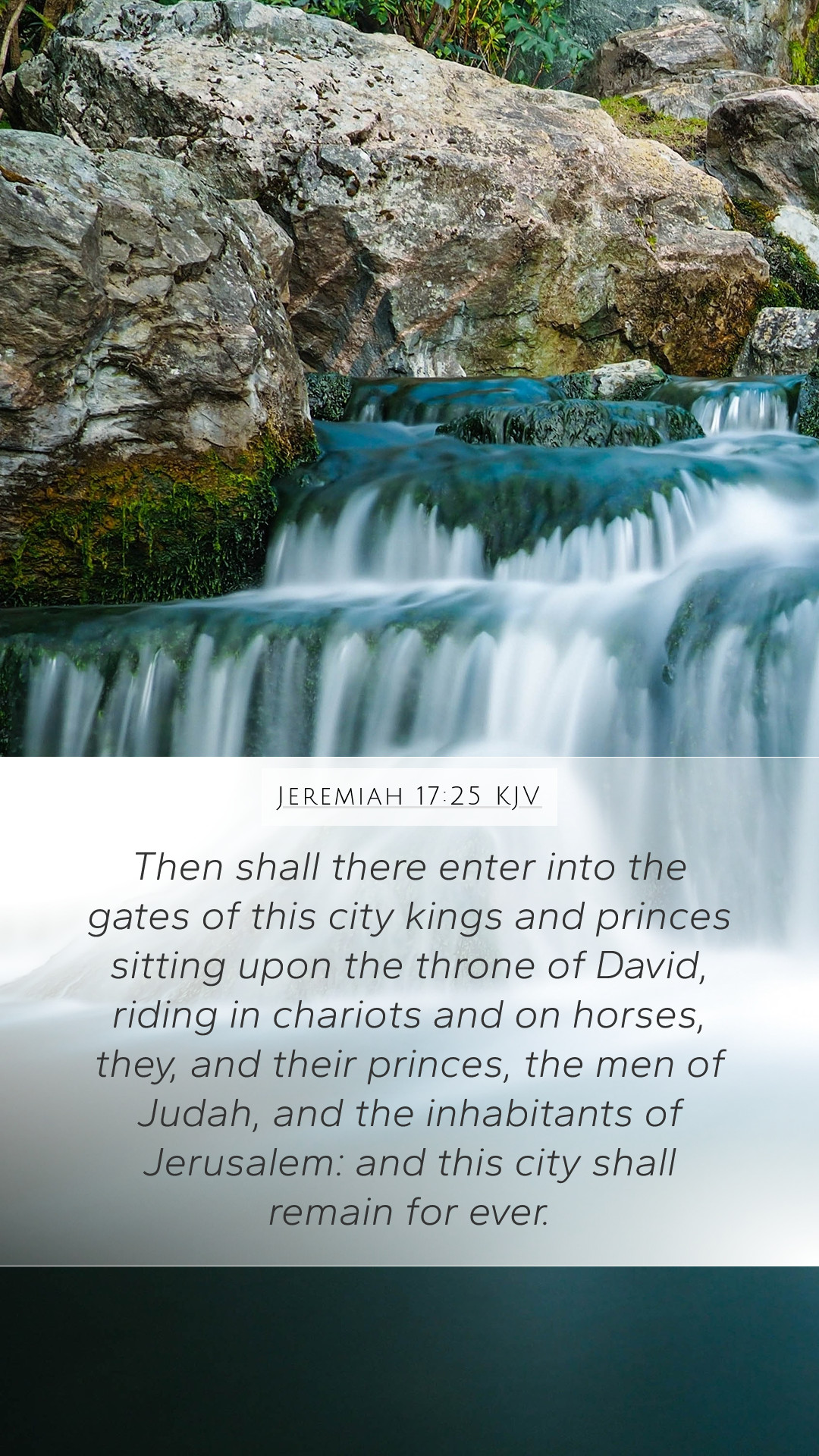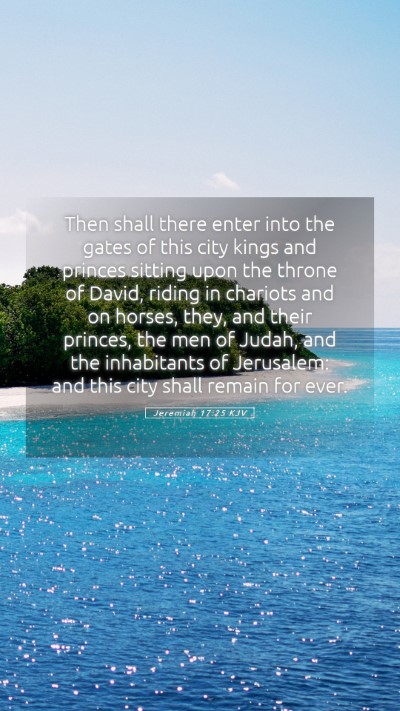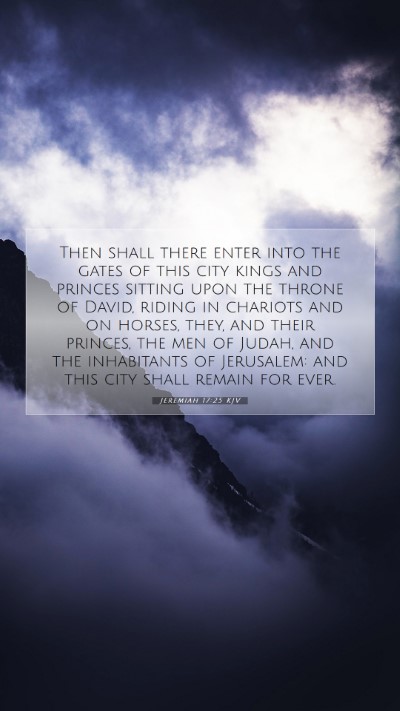Understanding Jeremiah 17:25
Verse: “Then shall there enter into the gates of this city kings and princes sitting upon the throne of David, riding in chariots and on horses, they, and their princes, the men of Judah, and the inhabitants of Jerusalem: and this city shall remain for ever.”
Jeremiah 17:25 offers profound insights into the enduring promise of God concerning Jerusalem and the Davidic line. Here, we explore the meaning and interpretations of this verse through the lenses of various public domain commentaries.
Bible Verse Meaning and Interpretation
This verse speaks of the future glory of Jerusalem and the restoration of its royal line. It expresses the hope that the kings and princes of Judah will enter the city's gates, symbolizing God's favor and the fulfillment of His promises.
Matthew Henry’s Commentary
Matthew Henry notes that this verse highlights the return of the kings to Jerusalem, indicating not just a restoration but a divine promise of continuity. He emphasizes the significance of riding in chariots and on horses, which was a sign of royal dignity and status. This imagery reinforces the notion that God's plan encompasses not just the physical restoration of the city but the spiritual renewal of His covenant people.
Albert Barnes’ Analysis
Albert Barnes points out that this verse assures the people of Judah that despite the current desolation, God will bring back their leaders in triumph. He interprets this as a proclamation of hope, where the entrance of kings signifies not only restoration but the acknowledgment of Jerusalem's rightful place as the center of God's dwelling among His people. Barnes also notes the eternal nature of this promise: “and this city shall remain forever,” signifying the everlasting kingdom of God destined to come through the Messiah.
Adam Clarke’s Commentary
Adam Clarke aligns with the sentiments of Matthew Henry and Albert Barnes, focusing on the implication of kings entering Jerusalem. He states that this prophecy speaks to the glory and permanence of Jerusalem as a city of God. Clarke elaborates that the description of chariots and horses underscores the strength and authority that the rulers will possess as they are restored to Jerusalem. Furthermore, he ties this imagery to the ultimate fulfillment in Christ's reign, offering a broader biblical context to the interpretation.
Key Themes and Insights
- Restoration: The verse is a beacon of hope for the Israelites, promising that their city will be restored and their kings returned.
- Divine Promise: It encapsulates God's covenant with David and His people, emphasizing that God's promises are steadfast.
- Eternal Kingdom: The phrase “this city shall remain forever” hints at the eternal aspect of God's kingdom, fulfilled in the New Testament through Christ.
Cross References
- Isaiah 60:11: "Therefore your gates shall be open continually; they shall not be shut day or night," which echoes the theme of restoration and continuous blessing for Jerusalem.
- Luke 1:32-33: References the eternal kingdom of Jesus through the house of David, linking the Old Testament prophecy to its New Testament fulfillment.
- Revelation 21:2: Describes the new Jerusalem coming down from heaven, reinforcing the promise of God’s presence with His people.
Application in Life and Study
The message of Jeremiah 17:25 can inspire believers to reflect on God’s faithfulness and the hope that restoration brings. In times of despair or when facing the consequences of shortcomings, this verse serves as a reminder of the enduring nature of God’s promises.
For Bible Study Groups
This verse can initiate robust discussions in bible study groups as participants explore the historical context of Jerusalem, the significance of David's lineage, and the implications of God’s promises in their own lives.
Online Bible Study Resources
Utilizing online bible study tools, individuals can engage deeper through various commentaries, sermons, and interpretations that highlight the significance of Scripture analysis surrounding this verse.
In-depth Bible Study Materials
Students can utilize bible study guides or bible study courses to understand Old Testament prophecies and their profound connections to New Testament revelations, particularly regarding the kingdom of God.
Understanding Difficult Bible Passages
In studying passages such as Jeremiah 17:25, seekers can learn how to interpret Bible verses effectively and apply these ancient truths to modern-day situations and challenges they may face.
Conclusion
The exploration of Jeremiah 17:25, through the insights gained from the commentaries of Matthew Henry, Albert Barnes, and Adam Clarke, provides a comprehensive understanding of God's promises and the magnificent hope of restoration for His people. As believers engage with this verse, they are encouraged to trust in the faithfulness of God and the eternal nature of His kingdom.


